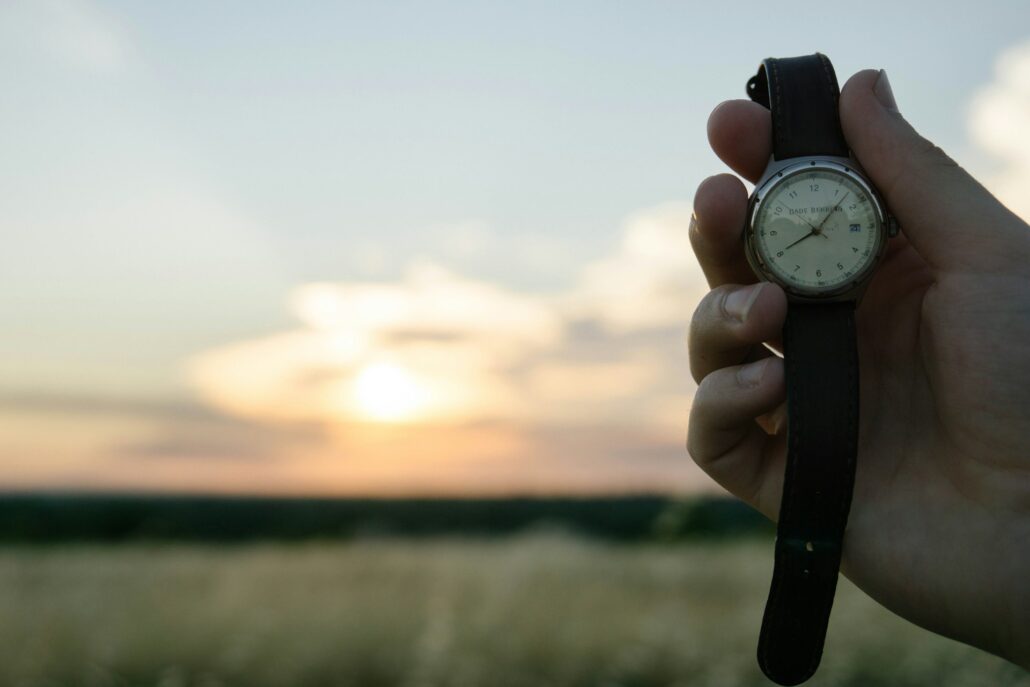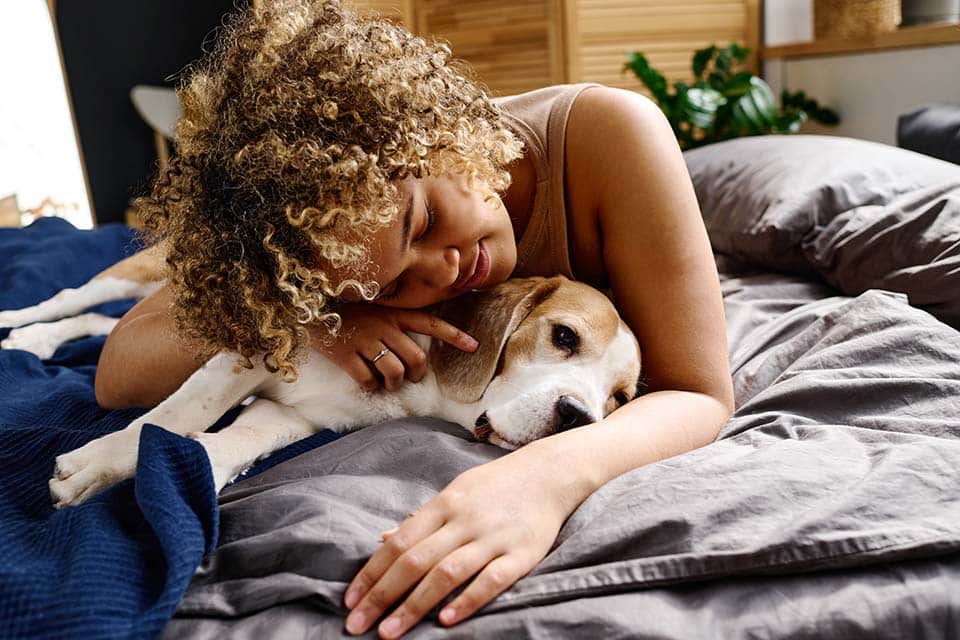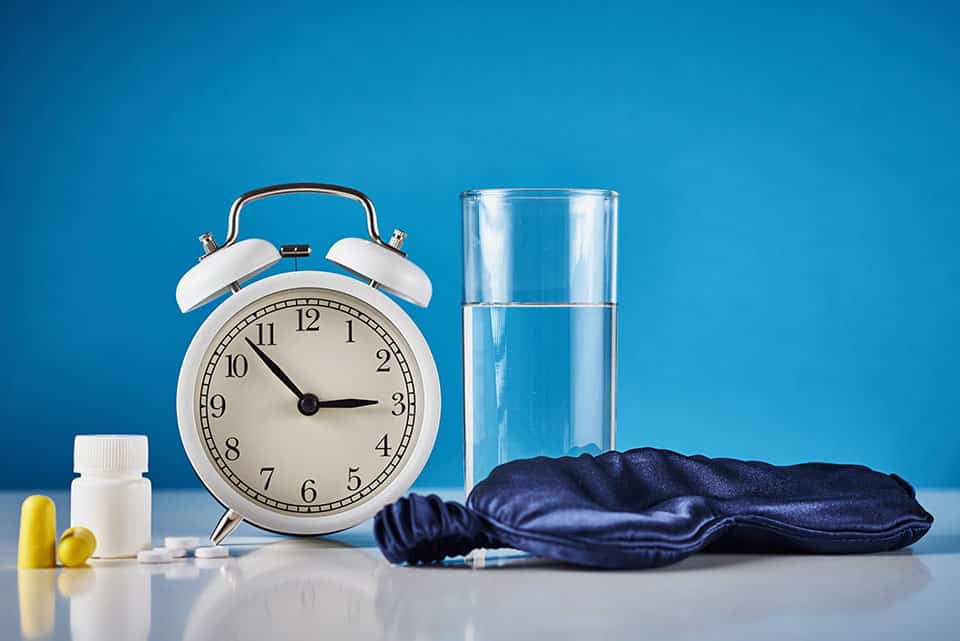Discover how social isolation impacts quality of sleep in America.
Methodology
2,000 surveys were fielded between April 10-18, 2019, among a representative sample of U.S. adults (age 18+), using a questionnaire lasting approximately 15 minutes. Sample size provides a confidence interval of ±2.19% at 95%. The sample was provided by Dynata, one of the largest online sample providers in the country.
Respondent Profile
| Gender | % | Age | % | Generation | % | Region | % | |||
| Male | 49% | 18-24 | 14% | Gen Z (18-22) | 8% | South | 37% | |||
| Female | 51% | 25-34 | 19% | Millennials (23-38) | 32% | Midwest | 23% | |||
| 35-44 | 18% | Gen X (39-54) | 28% | Northeast | 21% | |||||
| 45-54 | 17% | Boomers (55-73) | 27% | West | 19% | |||||
| 55+ | 32% | Silents (74+) | 5% |
Sleep Index
Analysis was conducted to establish a Sleep Index (SI) that can be used to track America’s sleep quality over time. The SI is calculated using the following questions:
Q2. On average, how would you describe your sleep within the past two weeks?
| Excellent | Very Good | Good | Fair | Poor |
| 5 | 4 | 3 | 2 | 1 |
Q7. Within the past two weeks, how often have you felt the following when you wake up in the morning?
| Frequently
(10 to 14 times) |
Often
(6 to 9 times) |
Occasionally
(3 to 5 times) |
Rarely
(1 to 2 times) |
Never | |
| Tired (want to continue sleeping) | 1 | 2 | 3 | 4 | 5 |
| Rested/refreshed | 5 | 4 | 3 | 2 | 1 |
The multiplicative index was scaled so the average score is 100. The index was used to create three groups, as depicted below, for analysis purposes.
| Poor Sleepers
(SI<90) |
Average Sleepers
(SI>=90 and SI<=110 |
Excellent Sleepers
(SI>110) |
| 56% | 11% | 33% |
There is a Strong Relationship Between Quality of Sleep and Quality of Interpersonal Relationships and Loneliness
People Who Feel Isolated or Have Difficult Interpersonal Relationships Tend to be Worst Sleepers:
- Adults who agree (completely or somewhat) that they wish they had more friends represent 46% of poor sleepers / 36% of excellent sleepers (Index 90)
- Adults who agree (completely or somewhat) that they have a difficult time in social situations represent 39% of poor sleepers / 22% of excellent sleepers (Index 74)
- Poor sleepers are 1.77 times as likely to have difficulty in social situations
- Adults who agree (completely or somewhat) that they would love to go out, but have no one to go out with represent 36% of poor sleepers / 24% of excellent sleepers (Index 82)
- Poor sleepers are 1.5 times as likely to want to go out and not have anyone to go out with
- Adults who agree (completely or somewhat) to having a difficult relationship with their spouse/partner represent 16% of poor sleepers / 9% of excellent sleepers (Index 81)
Conversely, People Who Do Not Feel Isolated or Have Strong Interpersonal Relationships are More Likely to be Excellent Sleepers:
- Adults who agree (somewhat or completely) that they have a great relationship with their spouse/partner make up 77% of poor sleepers / 88% of excellent sleepers (Index 110)
- Adults who agree (somewhat or completely) that they have deep, meaningful friendships with people outside of their family make up 54% of poor sleepers / 61% of excellent sleepers (Index 107). While the Index is not quite 110, it is very different than the Index among adults who disagree (somewhat or completely) (Index 83).
- Adults who agree (somewhat or completely) that they enjoy spending time with extended family make up 59% or poor sleepers / 67% of excellent sleepers (Index 105). While the Index is not quite 110, it is different than the Index among adults who disagree (somewhat or completely) (Index 81) and the difference in percentage between poor and excellent sleepers is statistically significant.
- Adults who agree (somewhat or completely) that they enjoy meeting new people make up 45% of poor sleepers / 55% of excellent sleepers (Index 109)
Other Studies Discovered That Lack Of Sleep Causes Loneliness
Lack of sleep has been identified as a cause of poor socialization, isolation and loneliness in other research as well. A recent study (https://www.ncbi.nlm.nih.gov/pmc/articles/PMC5791747/) suggests that when people sleep poorly, they are less accurate at judging other people’s expressions, quicker to rely on stereotypes, and are more susceptible to social stressors such as rejection and relationship conflict.
Another study (http://citeseerx.ist.psu.edu/viewdoc/download?doi=10.1.1.888.3314&rep=rep1&type=pdf) found that increased relationship conflict and decreased conflict resolution can occur due to poor sleep. This study suggested that people are less empathically accurate after a poor night of sleep, affecting socialization and relationships.
Who Is More Socially Isolated In America?
Methodology
Two items were used to identify those who were feeling isolated (based on review of the data/ correlations/dimension analysis):
I wish I had more friends.
I would love to go out, but I don’t have anyone to go out with.
Those who gave a top 2 box response on either item were identified as isolated.
- Those who are isolated are more likely to be female (55%) compared to those who are not isolated (47%)
- Younger generations
- Those who are isolated are more likely to be age 18 to 34 (39%) compared to those who are not isolated (27%)
- Those who are isolated are more likely to be Gen Zs, 18 through 22 (11%) compared to those who are not isolated (6%)
- Those who are isolated are more likely to be Millennials (35%) compared to those who are not isolated (28%)
- Single (never married). Those who are isolated are more likely to be Single (never married) (37%) compared to those not isolated (27%)
- Heavy users of social media, particularly at bedtime:
- Those who are isolated are more likely to check social media before bed (39%) compared to those who are not isolated (31%)
- Struggle with finances:
- Those who are isolated agree (somewhat or completely) that for the most part they live paycheck to paycheck (55%) compared to those who are not isolated (44%)
- Those who are isolated agree (somewhat or completely) that they generally have enough money to pay only for necessities (54%) compared to those not isolated (42%)
- Sleep poorer:
- Those who are isolated are more likely to indicate they often or frequently have trouble getting back to sleep when they’ve woken up at night (32%) compared to those who are not isolated (26%)
- Those who are isolated are more likely to indicate waking up tired often or frequently (58%) compared to those who are not isolated (44%)
- Those who are isolated are less likely to indicate rarely or never waking up refreshed (45%) compared to those who are not isolated (39%)
Who Is Less Socially Isolated In America?
- Those who are not isolated are more likely to be male (53%) compared to those who are isolated (45%)
- Older generations
- Those who are not isolated are more likely to be aged 55+ (39%) compared to those who are isolated (26%)
- Those who are not isolated are more likely to be Boomers (33%) compared to those who are isolated (22%)
- Those who are not isolated are more likely to be married (48%) compared to those who are isolated (38%)
- Those who are not isolated are more likely to be retired (26%) compared to those who are isolated (15%)
Sleep Better:
- Those who are not isolated are more likely to indicate they never or rarely have trouble getting back to sleep when they’ve woken up at night (38%) compared to those who are isolated (29%)
- Those who are not isolated are more likely to indicate never or rarely waking up tired (30%) compare to those who are isolated (18%)
- Those who are not isolated are more likely to indicate often or frequently waking up refreshed (34%) compared to those who are isolated (28%)
Survey Details: Better Sleep Council November 2019



